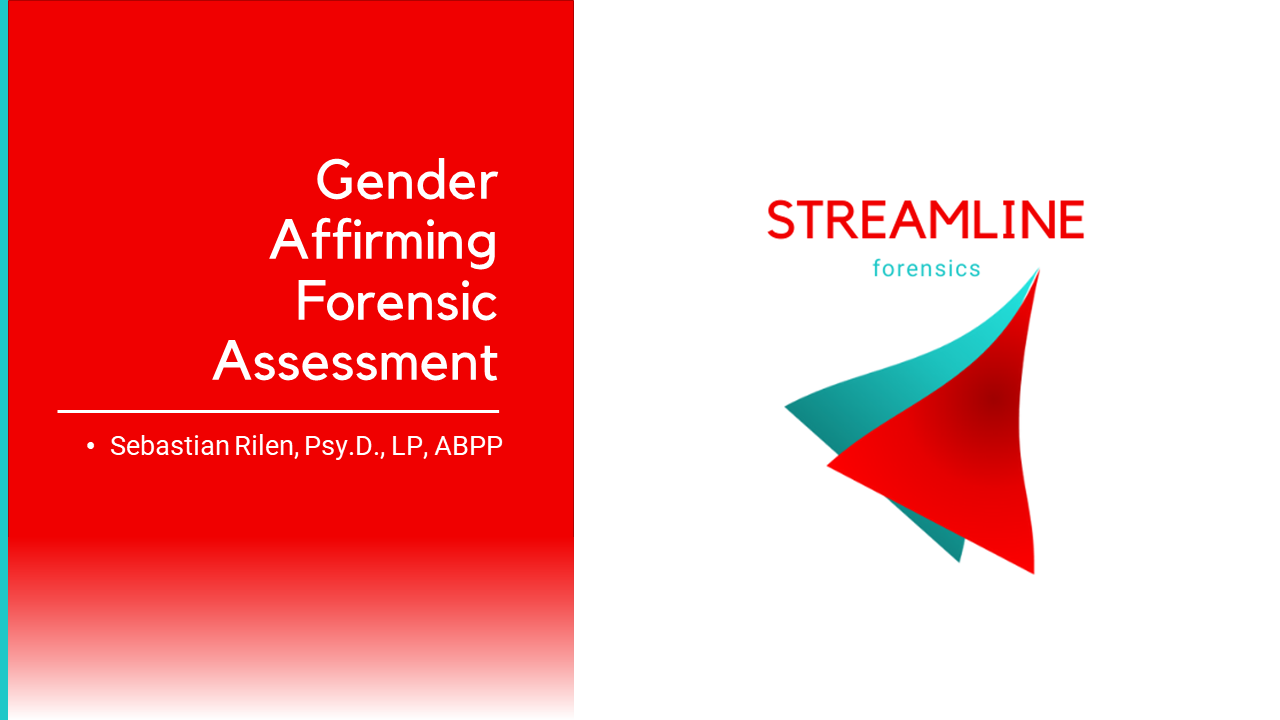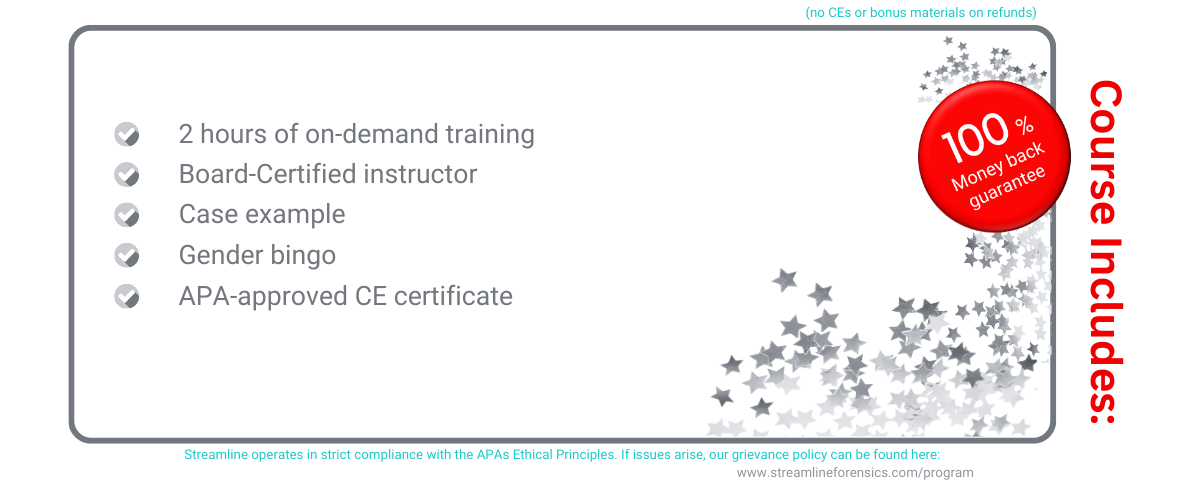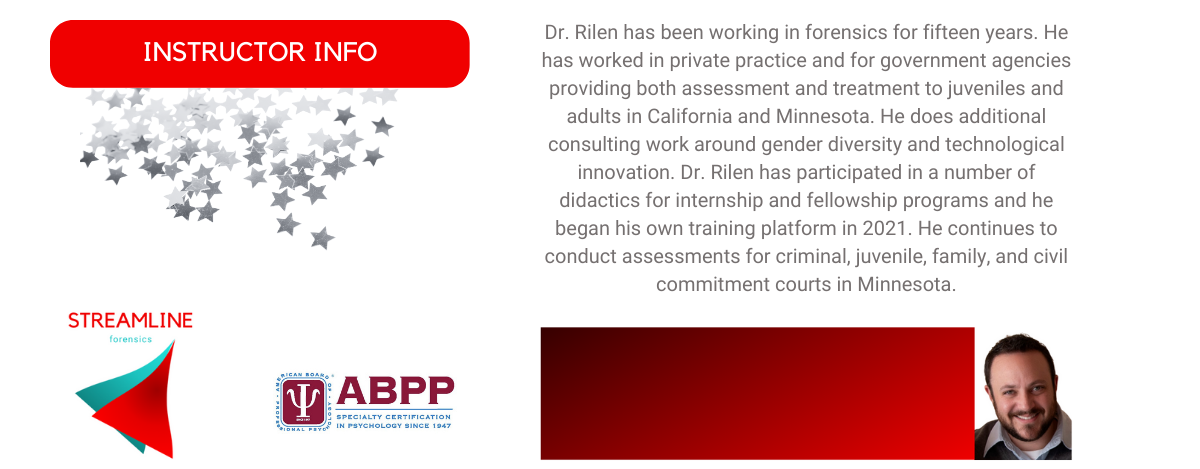Gender Affirming Forensic Assessment
Want to Improve Gender Affirming Practices in Your Interview, Diagnostics, Testing, and Report Writing?
Register Now
You're ready to improve your knowledge and awareness working with gender diverse clients. You want to feel more confident and reduce common clinical errors.
Let's Do Better Together!
__________________________________________________________________________________________

This course will help improve your work with gender diverse defendants


Ok so maybe you could use some help in this area, but does gender diversity need a whole course about it?
We'll show you what you might have been missing. How to...

Ask

Diagnose

Write About It
ABOUT THE TRAINING

This is a beginner level training in that you do not need to know anything about gender diversity prior to taking it. But to most benefit you should have at least moderate familiarity with basic practices in forensic assessment.
The last decade has seen an explosion of research and more intentional ethical guidelines promoting an affirming outlook on gender diversity. Unfortunately, much of this information has yet to permeate forensic practice. This course starts with a socio-historical look at gender and the courts while students learn common terminology. The remainder provides practical suggestions for incorporating and intentionally conceptualizing gender-related factors in the forensic interview, diagnostic conceptualization, testing, and report writing.

Students leave the course with a conceptual foundation for thinking about gender-diverse defendants. They receive concrete suggestions for asking gender-related questions – both “how” and “what” to ask. After taking the course, students should have a well-rounded perspective on when diagnosis is relevant forensically and common differentials that can be misinterpreted as pathology. They should take practical tips to write stronger and more affirming reports that also more accurately guide the Court and fulfill our ethical mandate for social justice advocacy.

1. Define 5 important gender diverse terms
2. Describe 3 reasons a gender affirming approach will improve your forensic practice
3. Describe 2 gender affirming approaches to use in a forensic interview
4. Name 2 differential diagnostic considerations
5. Identify 3 considerations for testing decisions
6.Name 1 strategy for writing about gender diverse individuals



Ready to Purchase?
Check out through out secure system, set up a user account (if you haven't already), and get learning!
Or, bundle Consumer Driven Forensic Reports (CDFR) with Gender Affirming Forensic Assessment (GAFA) or Examiner Designed Forced-Choice Measures (EDFC) and save!



